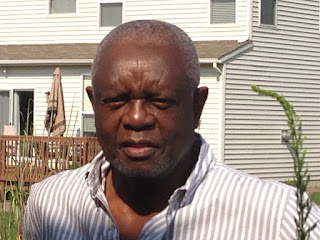Since that day in Nairobi, a lot of water has passed under the bridge. Three years later though, even Uhuru himself must agree that a permanent peace remains perfunctory and unity is an illusion.
As Kenyans prepare for elections next August, the question is whether the ruling Jubilee Party under Uhuru Kenyatta and his deputy William Ruto have fulfilled the promise to foster peace and unity, or have promoted a hegemonic society in which a few have benefitted at the expense of the majority; and have allowed political wars to fuel divisions.
That Kenya is a class society is not a matter of argument. The country has some of the richest as well as some of the poorest people in the world. The gap between the rich and the poor is so wide that the country's top 10 percent households control 42 percent of total income while the bottom 10 control less than one percent according to a report by the Society for International Development.
Even with improvements that have taken place over the years, the majority of Kenyans still have no access to affordable health and quality education. More children from poor households are dying before they reach their fifth birthday than those from wealthy households.
And, while rich families can afford to send their children to good schools, poor children in some rural areas still study under trees. Millions of Kenyans eat poorly and subsist under squalid, subhuman conditions in hardscrabble townships that are expanding fast and getting more dangerous.
True, Kenyans have seen considerable progress under both President Mwai Kibaki and now Uhuru Kenyatta. Railway lines and roads have and are being upgraded and extended, airports have been refurbished and new ports are coming up. Women are benefitting from free maternity services; electricity connections have doubled; and primary school children are, for the first time, being educated freely and have access to digital learning instruments.
What we are not seeing is progress on the political front. It is in this front that unity is required to maintain peace. Since independence, the Kenya elite has deliberately and systematically promoted political polarization by perpetuating tribalism, ethnic fears and hatred.
Presently, the country is monstrously divided on tribal and party lines. The fractious relationship between the ruling party Jubilee and the opposition CORD stokes deep concern for national unity. And although no serious combustion of violence has occurred during Kenyatta's time, we have nevertheless, seen violent demonstrations that have led to loss of life and destruction of property.
Based on figures from the last elections, half of Kenya supports Kenyatta and the other half Raila Odinga. The situation is unlikely to change even with the political realignments we have seen in recent weeks.
If things are not managed properly, the country could be thrown into deeper, darker waters, and peace could be disrupted before, during, and after the next election circle.
My crystal ball tells me that Raila has a chance of winning the presidential contest next year as much as Uhuru if he can capitalize on the above issues as well as dwell on the rampant corruption that has now festered into a ripe boil under Kenyatta.
However, all depends on whether or not the polls will be free and fair. Past experiences cast such expectations into doubt.
I should mention that Kenya is entering the second part of its first century as an independent nation with great expectations for positive changes that can improve substantially the lot of underprivileged citizens.
If setbacks and mishaps continue, permanent peace and unity will continue to be a mirage.
And that is my say.
NOTE: All my books are available in bookshops in Nairobi and at Amazon.com





